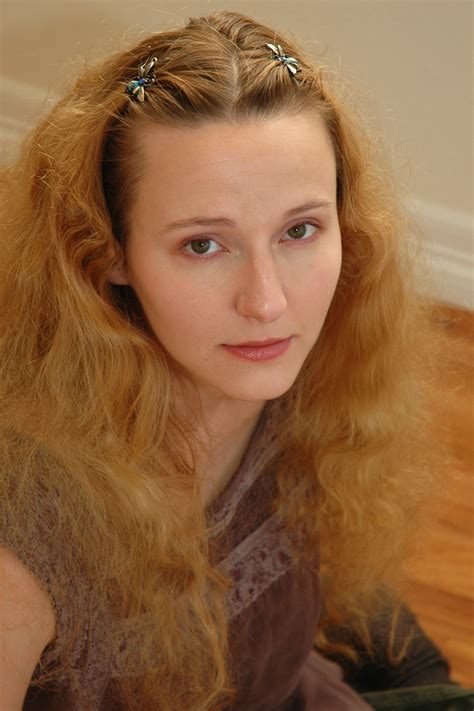A Quote by Tony Blair
There's a deep affection and respect for the Queen and the monarchy in the U.K. But Diana was an extraordinary, iconic figure and her death sparked a fierce reaction, part grief and part anger at her being taken away. It was very fraught.
Related Quotes
The reason the middle section switches to third person is, well, this is middle age. This is the part in her life where she loses track of something that was driving her and has to figure out what's going to drive the next part of her mission, this mission to be an author. I had to push back away from her for a while before we could come up to that really lyrical close third in the final section.
I'm part of the tribe who have said goodbye to one parent and are feeling a sense of responsibility for the one who remains - in my case, my mother. How do I make her time smoother, happier? How do I try to ease her, a widow, away from the dark well of grief without dishonoring the necessity of that grief?
Maybe the first time you saw her you were ten. She was standing in the sun scratching her legs. Or tracing letters in the dirt with a stick. Her hair was being pulled. Or she was pulling someone's hair. And a part of you was drawn to her, and a part of you resisted--wanting to ride off on your bicycle, kick a stone, remain uncomplicated. In the same breath you felt the strength of a man, and a self-pity that made you feel small and hurt. Part of you thought: Please don't look at me. If you don't, I can still turn away. And part of you thought: Look at me.
Well, anyway, her death changed our lives for the better, because it brought a kind of awareness, a specific sense of purpose and appreciation we hadn't had before. Would I trade that in order to have her back? In a fraction of a millisecond. But I won't ever have her back. So I have taken this, as her great gift to us. But. Do I block her out? Never. Do I think of her? Always. In some part of my brain, I think of her every single moment of every single day.
I knew she was a party girl. The book I liked most on her was called [princess] Margaret: A Life of Contrasts and getting to know her, it was how conflicted her position and her internal life - or self - was. She is so fiercely royal and so fiercely "sister of the queen" or "daughter of the king" because that is her identity and it's all she's ever known. And at the same time she is struggling to push the boundaries and to break away from it, to be different or to modernize the monarchy, to turn it on its head.
Kali is the goddess of destruction, the Clawed Hands, the Blood Drinker... And that's one side of her, as it is for any god. If you knew her for thousands of years you'd know she could be all colors. The sky is black at night, but if your eyes were good enough, they could see the different lights of a million stars. Death is part of her because death is part of life.
And she arose from her deathbed in a gossamer gown, with eyes the color of starlight and hair as black as the night. And those who were her captors trembled, for the scent of death and madness emanated from her soul, and yet she was not dead. She moved like the spiders that creep in the treetops, and none could look away. Taking her first captor in hand, she fed deep and ravenous. And so it was that Myst, Queen of the Indigo Court, was born from the blood of the dead.
We are equal human beings, and we were born with evil and anger and misunderstanding of what a man is, and so we are as needy and wanting to be part of him, as he, obviously, was needing and wanting to be part of us. And that's why I've really taken the freedom, because it's an adaptation, to give her a voice.
One other thing: at the meeting in Canada, [there was] the coup in Fiji. This comes to an important part of the Commonwealth: the role of the Queen [Elizabeth II]. I had absolutely just enormous respect for her as leader of the Commonwealth. You could talk to her about any of the fifty-one countries of the Commonwealth and you could have an intelligent conversation with her about the economics, the politics. She really immersed herself in the Commonwealth.
My sister will die over and over again for the rest of my life. Grief is forever. It doesn't go away; it becomes a part of you, step for step, breath for breath. I will never stop grieving Bailey because I will never stop loving her. That's just how it is. Grief and love are conjoined, you don't get one without the other. All I can do is love her, and love the world, emulate her by living with daring and spirit and joy.
My mother was the kind of person who was very much part of her tribe and very much a satellite of her tribe. She was the girl who left her family at the age of 17 and went to Washington. My mother was orphaned at three and then was brought up by my aunt Goldie. So, yes she belonged, but there was a part of her that didn't.











































